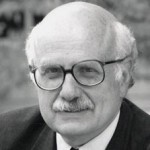This post first appeared on Politico.

Ted Cruz has made it abundantly clear that he doesn’t care for the ways of Washington.
From the moment of his arrival in the nation’s capital, the brash Texas senator has challenged the Washington establishment and old order, declaring political war on Democrats, many of his fellow Republicans, Beltway insiders, the executive branch and pretty much everything else. More than any than other politician, Cruz was responsible for the recent government shutdown and brinksmanship that brought the country to the edge of default. Evidently, he rejects governing on any terms but his own.
“I made promises to the people of Texas that I would come to Washington to shake up the status quo,” Cruz told The New York Times in February. “That is what I intend to do, and it is what I have done in every way possible in the responsibilities that have been granted to me.”
Well, it turns out he’s not out to shake up Washington in “every way possible.” When it comes to political money, the old ways that he so often derides seem to suit Senator Cruz just fine.
So-called Leadership PACs, for example, are a staple of the status quo, as vehicles for soliciting Washington influence-money and for creating cozy relations between members of Congress and Washington lobbying interests seeking government favors. Here’s how they work: While a donor can give $5,200 to a member’s campaign committee during a six-year election cycle, the same donor can give an additional $30,000 during the six-year period to the member’s Leadership PAC. These Leadership PACs can then be deployed to support other candidates, but are more often used to pay for political and other expenses incurred by the member, other than his campaign expenses.
Cruz apparently likes this particular old way of doing business so much that it took him less than a week after he was elected to create his very own Leadership PAC – the Jobs, Growth and Freedom Fund. Even before he was sworn in as a senator, Cruz was playing the Washington money game.
And from whom did Senator Cruz solicit and receive contributions for his Leadership PAC?
How about representatives of such Washington establishment players as the American Bankers Association, Lockheed Martin, Intel, Northrop Gruman, CSX Corporation, Altria Group (parent company of Phillip Morris) and Comcast? And add to that list representatives of Union Pacific Corporation, FMR Corp (Fidelity Investments), the National Association of Broadcasters, Burlington Northern Santa Fe Corporation, Norfolk Southern, Compass Bancshares, among others.
Not exactly the voices of ordinary citizens and grassroots America.
In his new book, Extortion: How Politicians Extract Your Money, Buy Votes and Line Their Own Pockets, Peter Schweizer, a fellow at the Hoover Institution, describes Leadership PACs as instruments for “a form of legal extortion designed to extract campaign contributions.”
Leadership PACs have long been considered political slush funds designed first and foremost to benefit the members of Congress who control them rather than to support other candidates. They are certainly not viewed as a means for challenging the old ways or the Washington establishment, which is the principal funder of most Leadership PACs.
Cruz is certainly not taking on the old ways with his strong defense of secret money in American politics. In October, when Cruz put a hold on Thomas Wheeler’s nomination as a commissioner of the FCC, the federal agency that oversees the broadcasting industry, he said he wanted to know Wheeler’s views about whether the FCC had the authority or intent “to implement the requirements of the failed congressional DISCLOSE Act,” according to a Cruz spokesman. Cruz dropped his hold on Wheeler this week after Wheeler reportedly agreed not to make disclosure of political ads by broadcasters a priority for the agency.
But Cruz seems almost obsessed with the DISCLOSE Act, intended to close loopholes that have allowed hundreds of millions of dollars in secret contributions to be spent in federal elections; earlier in the year, he claimed that it raised “grave constitutional concerns for speech protected by the First Amendment.”
Cruz might want to brush up on his First Amendment law. By an 8 to 1 vote, the Supreme Court in the Citizens United case upheld disclosure requirements for corporations and others who make independent campaign expenditures. Justice Anthony Kennedy, writing for the court, said in upholding disclosure: “Shareholders can determine whether their corporation’s political speech advances the corporation’s interest in making profits, and citizens can see whether elected officials are ‘in the pocket’ of so-called moneyed interests.”
Campaign finance disclosure requirements were first upheld as constitutional by the Supreme Court in 1976 in Buckley v. Valeo, on the grounds that they “deter actual corruption and avoid the appearance of corruption,” and aid voters “in evaluating those who seek federal office.”
Conservative Justice Antonin Scalia provided one of the most powerful defenses of disclosure in Doe v. Reed, a 2010 case involving a referendum petition. Scalia wrote in a concurring opinion, “Requiring people to stand up in public for their political acts fosters civic courage, without which democracy is doomed.”
So what, then, are we to make of Cruz’s “war” on the status quo? Leadership PACs and secret money play a central role in the exercise of power in Washington – and on both subjects, the Texas senator is on the side of powerful, wealthy interests at the expense of ordinary Americans.
Not that it’s stopping him from donning populist garb. In Iowa last week, Cruz, who is flirting with a president run, styled himself as a Beltway outsider. “I’m convinced we’re facing a new paradigm in politics; it is the paradigm of the rise of the grassroots. It has official Washington absolutely terrified,” he said.
But back in Washington, Cruz is already playing the insiders’ influence-money game, and competing with the best of them.


